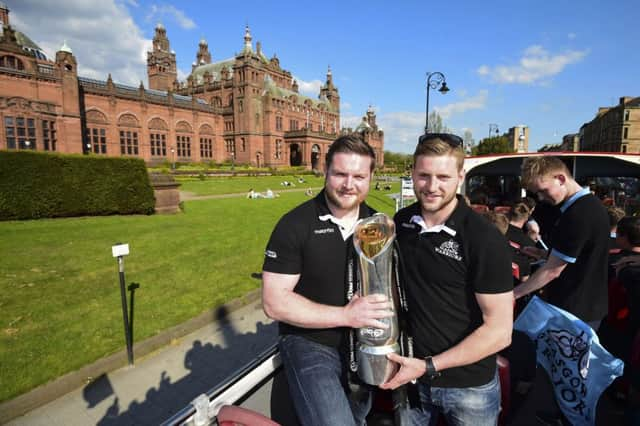Allan Massie: Juniors learning harsh lesson in Italy


Nobody could reasonably have expected us to beat the Baby Blacks. We were not surprisingly out-sped, out-muscled and out-thought by a team accustomed to playing a much higher level of rugby. Nevertheless, to lose by more than 50 points was bad. Too many first-up tackles were missed; too many players fell off tackles.
In a way, the Ireland game was worse because it was one that could – even should – have been won. The Scottish forwards had the upper hand most of the time, but promising positions and try-scoring opportunities were wasted, usually because someone knocked the ball on, or took the wrong option. In short, it was all rather too like many of the matches Scotland have played and lost in the Six Nations over the last 15 years. That said, there are at least half a dozen players in Lineen’s squad who look as if they may eventually flourish in the professional game.
Advertisement
Hide AdAdvertisement
Hide AdIt was noticeable that, when the young Scots tried to move the ball from behind the scrum, they almost always seemed to be standing very deep. Old coaching manuals often displayed a diagram showing the back division aligned on a diagonal in such a way that the wing threequarter was lying perhaps 20 yards deeper than the scrum or line-out. This was long before the rugby league style defence became the norm.
One consequence of the change has been that the fly-half is now usually expected to take the ball flat and attack the line, or feign to do so. But against Ireland the young Scots were lying so deep that they were regularly tackled well behind the gain-line, a position from which it is very difficult to retain possession, or at least to do so quickly. Anyone who has watched Glasgow this season has seen Finn Russell, pictured above, regularly asking questions of the defence, and being able to do so by taking the ball flat, then bringing runners either side of him into play.
Vern Cotter’s announcement of the preliminary World Cup squad called together for training naturally has us wondering who will make the final 31. One can be sure that any guess we may make will prove wrong. For one thing, there are bound to be injuries which will rule some out, and we can only hope that key players like Stuart Hogg, Finn Russell and Jonny Gray will come through the demanding training sessions safely.
In some positions Cotter has fair strength in depth. Of the six back-row players selected we can be pretty sure that any three would do a good job. You can add Rob Harley to the list even though he has been named as a lock. Yet there would be no general agreement about the first choice three. Compare this to Ireland and Wales, both of whom have a settled back-row combination that has experienced success at international level.
Much the same can be said about the nine or ten positions. Warren Gatland and Joe Schmidt probably know what their best starting XV is, assuming all are fit. One might surmise that even Stuart Lancaster, despite the choice available to him, is in the same position.
Vern Cotter may not be. This is partly of course because Ireland, Wales and England are accustomed to winning matches more often than losing them, and so it is natural that a settled team should emerge. Scotland sadly are in the opposite position, losing far more often than we win. This makes the job of selection more difficult.
Yet, as Clive Woodward said recently, selection is the most important part of the coach’s work at international level.
Even the captain’s position isn’t safe. Greig Laidlaw didn’t have a bad Six Nations and the reliability of his goal-kicking is invaluable. On the other hand, not only is young Sam Hidalgo-Clyne snapping at his heels, but Chris Cusiter has vast experience to offer – and experience matters in a World Cup. Then, if Cotter wants Scotland to play a fast off-loading game, it’s relevant that Gregor Townsend remarks that all Glasgow’s best attacking games – including the Guinness Pro12 final – have come when Henry Pyrgos has been at scrum-half. Yet one of the four won’t be in the World Cup squad. Which would you leave out?
Advertisement
Hide AdAdvertisement
Hide AdAgain this is a good question, but Ireland, Wales and England all approach the tournament with the wearer of the No 9 jersey settled; Conor Murray, Rhys Webb and Ben Youngs are all undisputed first choices for their respective countries. Competition for places is desirable, indeed necessary, but having a settled team is even more important. A settled team and winning matches go together, even if it’s the old chicken-and-egg question which comes first.